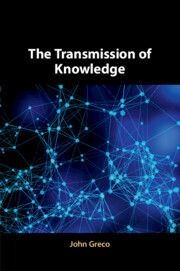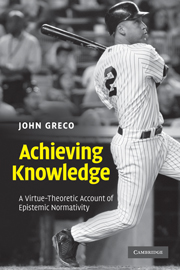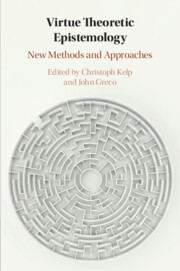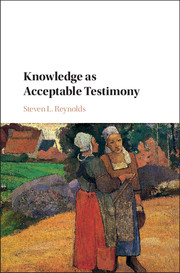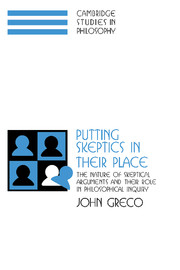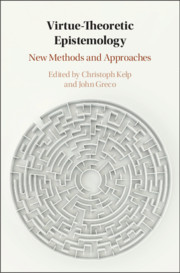The Transmission of Knowledge
- Author: John Greco, Georgetown University, Washington DC
- Date Published: August 2022
- availability: Available
- format: Paperback
- isbn: 9781108460057
Paperback
Other available formats:
Hardback, eBook
Looking for an inspection copy?
This title is not currently available on inspection
-
How do we transmit or distribute knowledge, as distinct from generating or producing it? In this book John Greco examines the interpersonal relations and social structures which enable and inhibit the sharing of knowledge within and across epistemic communities. Drawing on resources from moral theory, the philosophy of language, action theory and the cognitive sciences, he considers the role of interpersonal trust in transmitting knowledge, and argues that sharing knowledge involves a kind of shared agency similar to giving a gift or passing a ball. He also explains why transmitting knowledge is easy in some social contexts, such as those involving friendship or caregiving, but impossible in contexts characterized by suspicion and competition rather than by trust and cooperation. His book explores phenomena that have been undertheorized by traditional epistemology, and throws new light on existing problems in social epistemology and the epistemology of testimony.
Read more- Examines the interpersonal relations and social structures that enable and inhibit the sharing of knowledge
- Throws new light on existing problems in social epistemology and the epistemology of testimony
- Investigates issues in social epistemology by using resources from ethics, philosophy of language, action theory and cognitive sciences
Reviews & endorsements
'In this book John Greco significantly advances our understanding of the nature of testimony and of testimonial knowledge. His line of argument develops the idea that testimony is a social act that takes place in norm-governed social settings. The account that results will need to be taken up by anyone interested in the epistemology of testimony and in social epistemology more generally.' Sandy Goldberg, Northwestern University, Illinois
Customer reviews
Not yet reviewed
Be the first to review
Review was not posted due to profanity
×Product details
- Date Published: August 2022
- format: Paperback
- isbn: 9781108460057
- length: 226 pages
- dimensions: 228 x 151 x 12 mm
- weight: 0.33kg
- availability: Available
Table of Contents
1. Introduction: testimony and the transmission of knowledge
2. The framework presented: testimonial knowledge and the flow of information
3. Joint agency and the role of trust in testimonial knowledge
4. Social norms and social sensibilities
5. A unified account of generation and transmission
6. The framework extended: common knowledge
7. Education and the transmission of understanding
8. Reductionism and big science
9. Social religious epistemology
Appendix: the garbage problem.
Sorry, this resource is locked
Please register or sign in to request access. If you are having problems accessing these resources please email [email protected]
Register Sign in» Proceed
You are now leaving the Cambridge University Press website. Your eBook purchase and download will be completed by our partner www.ebooks.com. Please see the permission section of the www.ebooks.com catalogue page for details of the print & copy limits on our eBooks.
Continue ×Are you sure you want to delete your account?
This cannot be undone.
Thank you for your feedback which will help us improve our service.
If you requested a response, we will make sure to get back to you shortly.
×
